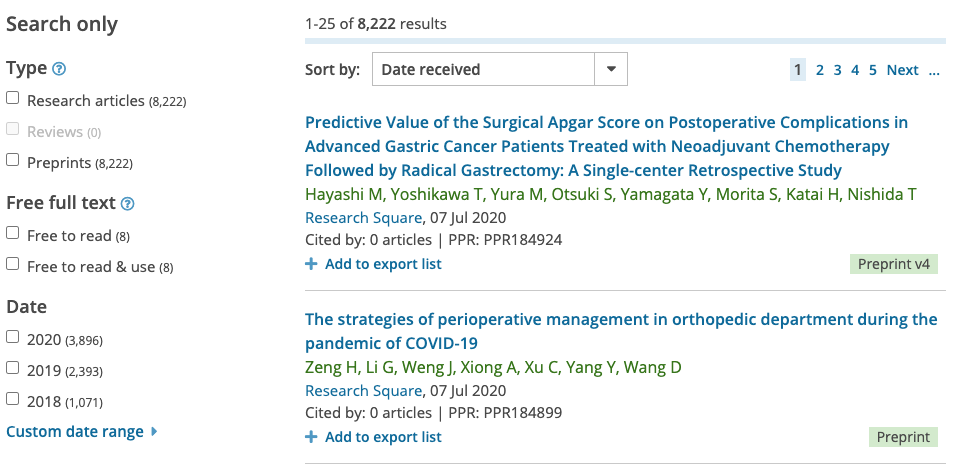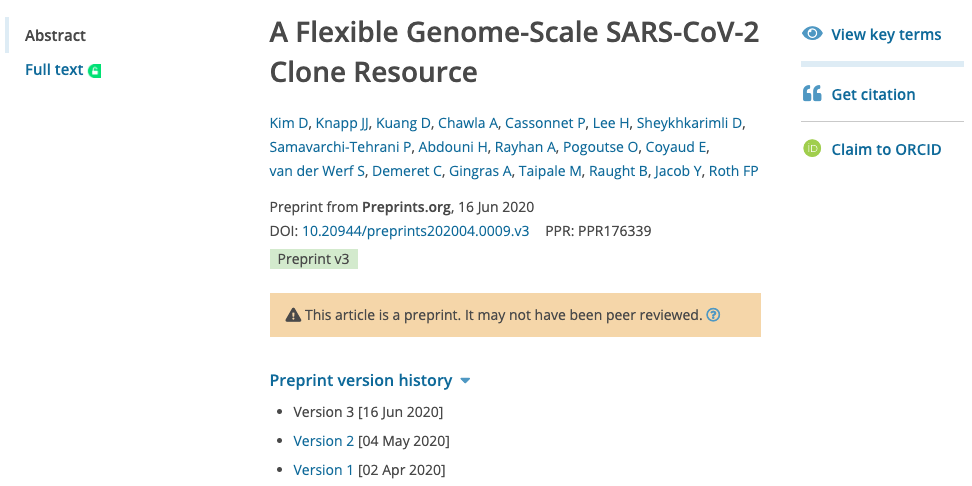Europe PMC has two full text preprint initiatives, preprints related
to Covid-19 and preprints funded by Europe PMC funders. For
researchers, this means a greater number of search results can be
returned when searching for content on Europe PMC. If a preprint has
an open access licence, the full text will also be available for
programmatic text mining enabling deeper analysis.
COVID-19 full text preprints indexed in Europe PMC
In July 2020, Europe PMC began indexing the full text of COVID-19
related preprints to make them searchable, alongside peer reviewed
articles.
The COVID-19 preprints initiative was supported by a joint award from
Wellcome, UK Medical Research Council (MRC), Swiss National Science
Foundation (SNSF), and endorsed by the Chief Scientist of the World
Health Organisation (WHO).
As the Chief Scientist of WHO I welcome the huge increase in the
use of pre-prints by researchers to rapidly share the emerging
evidence from the many studies on Covid-19. However, these are
published as .pdf documents and I recognise that the information
they contain could be more rapidly searched and linkages made
between the results and data they contain if they were converted to
the standard publishing language XML. I therefore support this
initiative by Europe PMC to take on this task."
—Dr. Soumya Swaminathan
Chief Scientist, WHO
4 May 2020
This initiative was extended with a follow up award from Wellcome, UK
and ended on 31 October 2023.
Europe PMC funder full text preprints indexed in Europe PMC
From April 2022 Europe PMC began indexing the full text of preprints
supported by
Europe PMC funders with Creative Commons
licences. Similar to the COVID-19 preprints initiative, the full text
is searchable and will also be available for programmatic text mining.

